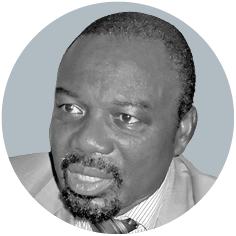Comment
Reconstruct African governance
By Vladimir Antwi-Danso
The unfolding drama in Côte d’Ivoire is generally cast as a personal power struggle between two men:
– Laurent Gbagbo, who was never properly elected, yet ruled Côte d’Ivoire for 10 years after flawed elections in 2000, and
– Alassane Ouattara, the candidate who was chosen as the country’s next president by the majority of voting Ivorians in the November run-off election.
The whole story is more complicated, of course. Côte d’Ivoire is a deeply troubled country. It experienced full-fledged civil war after the turn of the century. Peace has been fragile ever since. Several peace agreements have come and gone in recent years. There have been several UN Security Council resolutions as well as peacekeeping missions by the UN and ECOWAS, the Economic Community of West African States.
Elections were supposed to be held in 2006, 2007, twice in 2008 and in 2009. They finally took place last year. According to Côte d’Ivoire’s Electoral Commission, Ouattara won 54 % of the vote in the run-off. The international community, in rare unanimity, considers him the legitimate president. The AU and ECOWAS have suspended Côte d’Ivoire’s membership because Gbagbo is clinging to power.
Gbagbo first came to office in flawed elections in 2000, in which Outtara, the former prime minister, was not allowed to contest because his parents were not originally from Côte d’Ivoire. This time, Gbagbo manipulated the country’s top court, appointed by himself, to disallow votes cast for his opponent. He seems intent on causing harm. In Abijan alone, more than 200 politics-related deaths were counted by mid-January. More than 70,000 refugees were reported to have fled to Liberia. The international community must not allow Gbagbo to prevail.
At the same time, however, the crisis needs to be assessed in the broader context of the democratic deficit in Africa. Almost all contemporary African states are poorly functioning hybrids of indigenous cultures and customs mixed with Arab and European models of governance that arrived with invasions, colonialism, migration and globalisation. It would take visionary leadership to design new constitutional orders that take into account Africa’s socio-political history and its cultures.
Instead of looking at democracy as a process, however, African leaders tend to view it as an event. Instead of institutional renewal, there is the fight of big egos. The fixation on persons obscures the deeper problem: the fundamental disjuncture between Africa’s modern political institutions and its ethnic communities and traditional institutions.
Right now, this disjuncture is most evident in Côte d’Ivoire. The crisis manifests a deep rift between the largely Muslim north and Christian south. The rift is exacerbated by ethnic tensions which result from colonial borders drawn without regard for the integrity of local communities. The biggest challenge today is not to establish the presidency of Ouattara, but to unite a country that is divided by many fault lines which were reinforced in the civil war of 2002.
The agenda is daunting. Important items include
– tackling national identity and citizenship issues,
– reforming land tenure and
– devolving power from the presidency to achieve more representative and inclusive governance.
It also means avoiding “big man” politics and focusing on institutional renewal. Where state institutions are strong, governments find it hard to manipulate the system.
For Côte d’Ivoire and other African countries, it is especially important that peace and reconstruction efforts make sense to those people whose lives are still governed by customs and traditional institutions. Africa’s best hope is to find a middle way of governance that is inclusive and rooted in the legitimacy of its own ways, but borrows pragmatically from the globalised world. Africa’s answer may be another hybrid form of governance, but one constructed by Africans themselves instead of imposed from the outside.








